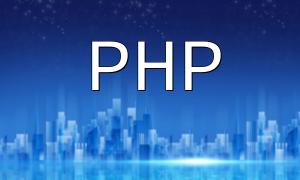In today’s digital landscape, website speed and security directly impact user experience and business results. Upgrading Kloxo PHP not only gives you access to the latest features but also patches known vulnerabilities, reducing security risks and improving both speed and stability.
To ensure a smooth Kloxo PHP upgrade, it’s important to be fully prepared beforehand. These steps help minimize risks during the process.
Before upgrading, back up all critical data, including website files, databases, and configuration files. Make sure the backup is complete and functional so you can restore it quickly if needed.
Different PHP versions may cause compatibility issues with older code or plugins. Before upgrading, verify that your site’s programs, plugins, and custom scripts are compatible with the target PHP version, and make necessary adjustments in advance.
Once preparation is complete, you can follow these steps to upgrade.
Log in to the Kloxo control panel using an administrator account to ensure you have sufficient permissions to perform the upgrade.
In the “Software” section of the panel, locate the PHP version management option. This will show the current version and available upgrade options.
Choose your desired PHP version and click the upgrade button. The system will automatically complete the installation and replacement process, which usually takes a few minutes.
After the upgrade, visit various parts of your site to ensure all functions are working properly, especially custom features and third-party plugins. If issues arise during testing, fix them promptly or roll back to the backup version.
If problems occur, first restore your site using the pre-upgrade backup, then identify and resolve any conflicting plugins or code.
Before upgrading, review plugin and script update logs to ensure compatibility with the new PHP version. Keeping plugins and software updated regularly helps maintain long-term stability and compatibility.
Following proper steps when upgrading Kloxo PHP can significantly improve your website’s performance and security. Regular maintenance and updates not only extend your site’s lifespan but also provide visitors with a smoother browsing experience.








